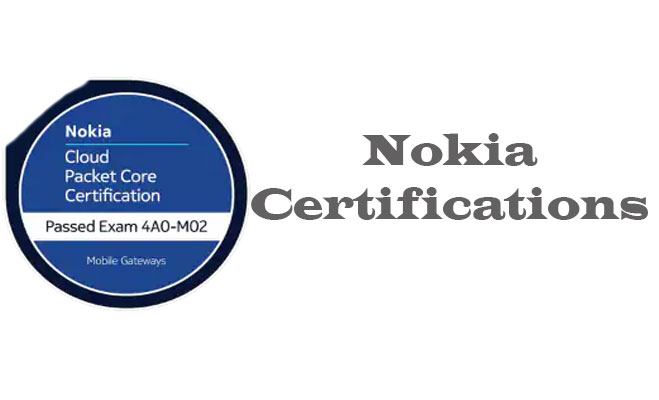
Last Update: 17-04-2025 | Total Questions: 140
Nokia's latest innovations and the importance of its certifications

Nokia's IP/Optical (ION) portfolio covers end-to-end network needs for the entire transport layer and beyond. The network solution covers four broad areas: IP technology (including packet core), optical networking technology, software-defined networking (SDN) technology, including our Cloud Networks solution and our recently launched next-generation data center solution. Our solutions support all layers of the network, from the data center to user premises and radio towers that provide front, medium and rear transport, as well as edge, aggregation and metro networks. It also covers national and international backbones, including sub-submarine network terminals.
At the heart of its products are proprietary chips designed by itself, as well as an efficient andstate-of-the-art software operating system, which allows them to provide its customers with the scalability and flexibility to ensure a differentiated user experience and a faster return on investment.
With this progress in this field, Nokia certifications like Nokia Mobile Gateways (4A0-M02 exam) have become increasingly in demand in the market place.
Nokia recently announced the fifth-generation FP5, which provides a processor dedicated to network processing. Scandinavian OEMs claim that this new generation of high-performance IP processors will offer increased capacity and efficiency, as well as new encrypted capacity. This new offering is designed for service providers who need to meet the higher broadband demands caused by the health crisis while addressing growing threats, including through the unprecedented growth of denial-of-service (DDoS) attacks.
Nokia's previous-generation IP routing processor, FP4, offered DDoS protection in volume with router-based detection and mitigation. FP5 goes even further and introduces an additional layer of network protection with ANYsec. This is a new throughput-based encryption feature built into the chipset, "reducing power consumption by 75 percent and providing new built-in encryption," Nokia says. management.
Note that network traffic encryption options are typically divided into two standards: MACsec and IPsec. Since MACsec is processor-based, it has lower latency for more profitable business models. However, its hop-by-hop architecture presents risks and delays when applied to IP services such as MPLS and segment routing. IPsec only takes one jump, but it's slower and more expensive. Nokia's ANYsec uses a number of MACsec encryption standards while supporting native encryption over MPLS and segment routing. According to the Finnish manufacturer's staff, this is carried out on a large scale without impacting performance or energy efficiency.
For information the price of 4A0-M02 exam is $125.
